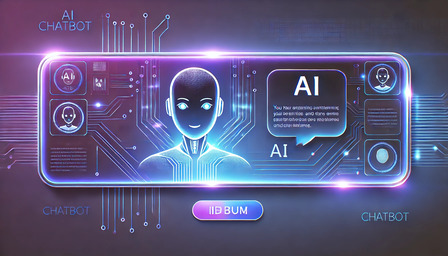AI chatbots have transformed the way websites interact with visitors, making communication more efficient and accessible. Businesses use these intelligent tools to provide instant responses, guide users through their services, and even handle transactions. With the rise of online interactions, companies seek solutions that streamline user engagement without compromising quality. AI chatbots fill this gap by offering round-the-clock support and personalized assistance.
How AI Chatbots Improve Website Interactions
24/7 Availability and Instant Responses
One of the biggest advantages of AI chatbots is their ability to assist users at any time of the day. Unlike human agents, who have limited working hours, chatbots remain active round the clock. Users no longer have to wait for responses, making their online experience more convenient and efficient.
Personalized Conversations
Chatbots are not limited to generic answers; they analyze user behavior and past interactions to provide relevant recommendations. This level of customization makes visitors feel valued and understood. For instance, e-commerce websites use chatbots to suggest products based on previous purchases, while service-based platforms offer tailored solutions depending on user queries.
Streamlining Customer Support
Handling large volumes of customer queries can be challenging for businesses. AI chatbots help filter and categorize inquiries, directing complex issues to human representatives while resolving routine questions instantly. This not only saves time for users but also reduces operational costs for businesses.
Assisting in Online Transactions
From booking appointments to completing purchases, AI chatbots simplify online transactions. They guide users step by step, reducing confusion and ensuring a seamless process. In particular, banking and retail websites benefit from chatbot-driven interactions that allow users to check balances, track orders, and receive payment reminders.
AI Chatbots and User Engagement
Interactive and Engaging Communication
Websites with static content often fail to hold user attention. AI chatbots add an interactive element by initiating conversations, asking relevant questions, and providing immediate solutions. This makes the browsing experience more engaging and enjoyable.
Language and Multilingual Support
Businesses catering to a global audience benefit from chatbots that support multiple languages. Users can communicate in their preferred language, removing language barriers and making websites more accessible.
Collecting User Feedback
Understanding customer preferences and pain points is crucial for improving services. Chatbots collect valuable insights by conducting surveys and gathering feedback in real time. This data helps businesses refine their strategies and deliver better user experiences.
AI Chatbots in Different Industries
E-Commerce
Online shopping platforms use chatbots to assist customers with product recommendations, order tracking, and returns. This reduces customer frustration and improves the likelihood of repeat purchases.
Healthcare
Medical websites integrate AI chatbots to schedule appointments, provide health tips, and answer common medical inquiries. This reduces the burden on healthcare professionals and ensures patients receive timely assistance.
Education
Educational institutions implement chatbots to guide students through enrollment processes, answer academic queries, and provide study resources. This simplifies administrative work and improves student satisfaction.
Entertainment
Many entertainment websites use AI chatbots to suggest movies, music, or games based on user preferences. These recommendations create a more enjoyable experience by tailoring content to individual tastes.
Ethical Considerations and Challenges
Privacy and Security Concerns
Since chatbots handle sensitive user information, data security is a critical concern. Websites must implement strong encryption and privacy policies to ensure user trust.
Avoiding Over-Reliance on AI
While chatbots improve efficiency, they cannot completely replace human interactions. Businesses must strike a balance by integrating AI with human support for complex issues that require empathy and critical thinking.
AI Bias and Fairness
Chatbots learn from data, which means they may develop biases if not properly monitored. Regular updates and audits are necessary to ensure unbiased and fair responses.
The Future of AI Chatbots on Websites
The integration of AI chatbots in website interactions continues to advance. Future developments may include even more human-like conversations, voice-enabled interactions, and deeper emotional intelligence.
Many users already interact with AI chatbots in various forms, whether it’s customer support on e-commerce platforms or virtual assistants on personal devices. Some chatbots are designed to simulate human-like interactions, such as an AI Girlfriend, which provides companionship and emotional support. These advancements show how chatbots are evolving beyond traditional customer service roles.
Similarly, keeping up with the Latest AI and tech news helps businesses and individuals stay informed about chatbot innovations and industry trends. As AI chatbots become more sophisticated, their role in shaping website experiences will only grow.
Conclusion
AI chatbots have significantly improved how users interact with websites. They offer convenience, personalization, and real-time support across various industries. Businesses that adopt chatbot technology benefit from increased efficiency and customer satisfaction. However, responsible AI implementation is crucial to address privacy concerns and ethical challenges. As chatbot technology evolves, websites will continue to refine user experiences, making online interactions smoother and more engaging.


